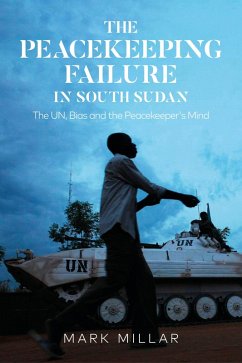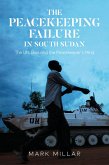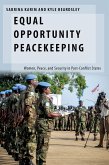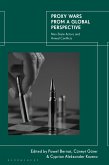In 2011, South Sudan was welcomed into the United Nations as the world's newest nation. Celebrations on the ground reflected palpable relief after more than 20 years of violent struggle. With unprecedented goodwill and optimism, the UN deployed 7,000 soldiers and another 2,000 police and civilian peacekeepers to the country to support its transition to independence.
However, the mission failed and within less than three years South Sudan was plunged into a catastrophic civil war. Using firsthand accounts from senior UN officials and referencing hitherto unseen UN documents, this book explores the role of the peacekeeping mission in that failure. It challenges the resignation with which many in academia and the media greeted the underperformance of the peacekeepers. It suggests that, even while under-resourced, they could have done much more to prevent bloodshed in the new country and protected civilians from the chaos of the first years of the conflict. The UN has thus far avoided a thorough and public examination of its actions in South Sudan. It has avoided accountability and instead rewarded failed decision-makers. This book is an attempt to re-assess the legacy of that mission and to detail how its many mistakes can and should be avoided in the future.
However, the mission failed and within less than three years South Sudan was plunged into a catastrophic civil war. Using firsthand accounts from senior UN officials and referencing hitherto unseen UN documents, this book explores the role of the peacekeeping mission in that failure. It challenges the resignation with which many in academia and the media greeted the underperformance of the peacekeepers. It suggests that, even while under-resourced, they could have done much more to prevent bloodshed in the new country and protected civilians from the chaos of the first years of the conflict. The UN has thus far avoided a thorough and public examination of its actions in South Sudan. It has avoided accountability and instead rewarded failed decision-makers. This book is an attempt to re-assess the legacy of that mission and to detail how its many mistakes can and should be avoided in the future.









